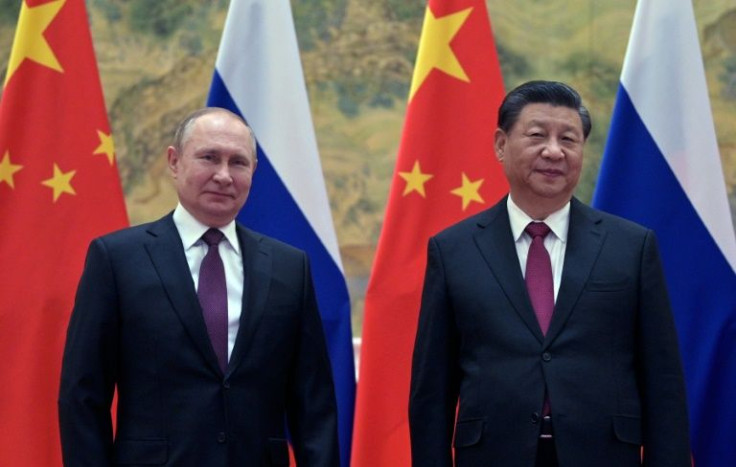A New World Order, Defying The US, On The Cards

Since the humiliating Afghan debacle by the U.S. in August 2021, new world order is shaping up. In fact, the U.S. sanctions against Russia and China have ended up helping them rather than hurting them.
Russian President Vladimir Putin emerged as the biggest winner in the Ukraine crisis as he meticulously converted the heavy-duty saber-rattling into real political leverage. Apparently, the U.S. missed the bus.
When U.S. President Biden mooted waging war against Russia over the Ukraine crisis, Germany and France, two EU nations and members of NATO, shot it down, citing economic and humanitarian reasons. War with Russia has few takers.
President Jair Bolsonaro of Brazil flew to Moscow despite repeated entreaties from the U.S. that he put off his trip. Bolsonaro held a high-level meeting with Putin Feb. 16 as Russia is the main supplier of fertilizers to Brazil's agrarian economy.
China successfully conducted the Beijing Winter Olympics this month despite U.S. President Joe Biden's unilateral call for the diplomatic boycott of the international sporting event. As on the expected lines, a handful of trusted U.S. allies heeded the call by Biden and it fell on the deaf ears of other nations.
Since the Trump era, a recalcitrant North Korean leader Kim Jong-un has been playing with fire and conducting missile tests aimed at South Korea and Japan, two Asian partners of the U.S. Despite Trump's threat of nuclear attack, 38-year-old Kim has not fallen in line till now.
Turkey, a key member of NATO, and India, a vital member of QUAD, aimed at containing China, has defied the U.S. diktat and fell for the Russian-make S-400 missile system. The looming threat of U.S. economic sanctions against buying Russian arms and software did not prevent Recep Tayyip Erdoğan and Narendra Modi from laying their hands on the lethal Russian weapon.
Pakistan, a close U.S. ally during the cold war, showed its back when the Biden administration put forth the idea of establishing a military base in Pakistan following the Afghan debacle.
Sri Lanka and Bangladesh refused to support the U.S.-led anti-China campaign, despite the heavy prodding by Washington and its Asian allies.
Cambodia and Myanmar are historically Chinese allies and the U.S. efforts to woo them have met with no success.
Much against the wishes of Washington, Gulf nations, once dancing to the tunes of the U.S. establishments, are trooping into the Chinese camp to zeal lucrative trade deals.
Since 2009, the U.S. has been supporting, training, and funding Burkina Faso's military as part of Washington's counterterrorism efforts. The same military staged a coup in the West African nation in January-end, claiming President Roch Marc Christian Kaboré's democratically elected government was not adequately dealing with the unrest in the country.
The U.S. has been providing extensive counterterrorism training in West African nations and created the Pan Sahel Initiative in 2003. It started training military units from Chad, Mali, Mauritania and Niger to take on the Jihadi outfits. In 2005, the Pan Sahel Initiative was upgraded to Trans-Sahara Counterterrorism Partnership to include Algeria, Morocco, Nigeria, Senegal and Tunisia. Beyond causing widespread death, suffering and fear, unrest has increased in the entire continent.
A slew of victories for progressives in Latin America has shown that the continent is slowly shifting away from the U.S. influence to side with Russians and the Chinese. Left-of-center candidates have won presidential polls in Argentina, Bolivia, Chile, Mexico, and Peru since 2018, and leftists lead in the polls in this year's campaigns in Brazil and Colombia.
In the midst of the Ukraine crisis, Putin has also been busy expanding Russia's influence in Latin America. The Russian leader spoke to Nicaragua's President Daniel Ortega for the first time since 2014. He also called the leaders of Venezuela and Cuba and hosted the president of Argentina, Alberto Fernández, who vowed to reduce Argentina's reliance on the U.S.
Many Latin American nations are currently under China's influence after Beijing financed infrastructure projects across the continent. China is involved with an elevated Metro in Colombia to a space station in Argentine. Currently, Moscow and Beijing are trying to edge past the U.S. when it comes to courting the Latin American nations.
When the pandemic hit, the world looked forward to the U.S. for succor. However, Biden's vaccine diplomacy has not been a force for good. The U.S. vaccine diplomacy has turned into nothing more than doublespeak, which has prolonged the global health crisis and claimed the lives of scores of people.
Beijing and Moscow, on the other hand, reaped substantial soft power dividends providing the vaccines to countries left behind by the vaccine inequity.
Earlier, nations had a little practical alternative to U.S. hegemony and today they are showing signs of staying free from U.S. economic and military dependencies.





